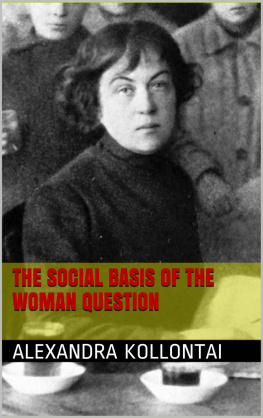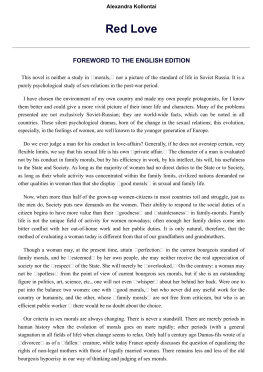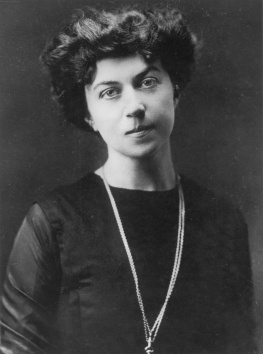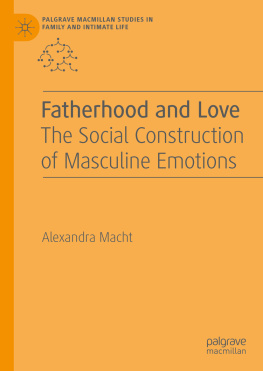Alexandra Kollontai - The Social Basis of the Woman Question
Here you can read online Alexandra Kollontai - The Social Basis of the Woman Question full text of the book (entire story) in english for free. Download pdf and epub, get meaning, cover and reviews about this ebook. year: 2014, publisher: Anarcho-communist institute, genre: Home and family. Description of the work, (preface) as well as reviews are available. Best literature library LitArk.com created for fans of good reading and offers a wide selection of genres:
Romance novel
Science fiction
Adventure
Detective
Science
History
Home and family
Prose
Art
Politics
Computer
Non-fiction
Religion
Business
Children
Humor
Choose a favorite category and find really read worthwhile books. Enjoy immersion in the world of imagination, feel the emotions of the characters or learn something new for yourself, make an fascinating discovery.
- Book:The Social Basis of the Woman Question
- Author:
- Publisher:Anarcho-communist institute
- Genre:
- Year:2014
- Rating:4 / 5
- Favourites:Add to favourites
- Your mark:
- 80
- 1
- 2
- 3
- 4
- 5
The Social Basis of the Woman Question: summary, description and annotation
We offer to read an annotation, description, summary or preface (depends on what the author of the book "The Social Basis of the Woman Question" wrote himself). If you haven't found the necessary information about the book — write in the comments, we will try to find it.
The Social Basis of the Woman Question — read online for free the complete book (whole text) full work
Below is the text of the book, divided by pages. System saving the place of the last page read, allows you to conveniently read the book "The Social Basis of the Woman Question" online for free, without having to search again every time where you left off. Put a bookmark, and you can go to the page where you finished reading at any time.
Font size:
Interval:
Bookmark:
Published by the Anarcho-Communist Institute of the USA
January 2014
More from this publisher:
http://www.amazon.com/s/ref=nb_sb_noss?url=search-alias%3Ddigital-text&field-keywords=Anarcho-Communist%20Institute
Other titles from PJ Haney (foreword & edit):
http://www.amazon.com/s/ref=ntt_athr_dp_sr_2?_encoding=UTF8&field-author=PJ%20Haney&search-alias=digital-text&sort=relevancerank
Find, and Like, us on Facebook:
https://www.facebook.com/pages/Anarcho-communist-institute/720648661296382?ref=hl
Foreword
Here we present a second work by Madame Alexandra Kollontai in an electronic edition (for the first time). This work was originally published in St. Petersburg, in the year of 1909 as: A. Kollontai, The Social Basis of the Women's Question .
Author wrote the introduction in 1908, and the main essay was first available as a pamphlet in the early 1909, only later published together.
Kollontai references this book in her work Communism and the Family, which is also available as an e-book from this publisher.
I hope you like this edition and that you will be inspired!
PJ Haney,
January 15, 2014
Alexandra Kollontai
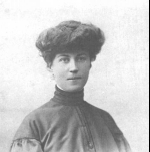
Kollontai in circa 1905
Introduction to the Book
The Social Basis of the Women's Question.
The women's movement in Russia is passing through a decisive moment in its history: in December 1908 it will be reviewing the creative activity carried out by women's organizations over the last few years, and at the All-Russia Women's Congress it must decide upon the 'course of action' to be followed by feminists (note : Feminism was considered abourgeois women's movement which sought equal rights for women within the framework of the bourgeois state. The feminists demanded that women be accorded the right to elect and be elected, the right to engage in commerce and business operations. ) in the coming years of struggle for women's emancipation. Complex socio-political problems, which until recently still belonged to the realm of abstract 'thorny' issues, are now, as a result of the events that have taken place in Russia, becoming urgent issues demanding energetic practical involvement and solution. These problems include the so-called women's question. With each passing day a growing number of women are drawn into the search for an answer to three disturbing questions: Which way shall we go? What should we do? How can we make sure that the female section of the population of Russia also receives the fruit of the long, stubborn and agonizingly difficult struggle for a new political structure in our homeland?
The Alliance for Equality ( a feminist organization formed in Russia at the beginning of the 20th century. The alliance demanded that women be given political equality and the right to enter various professions. The Alliance was dissolved after the defeat of the first Russian revolution of 1905-1907. ) together with the section on women's voting rights of the Russian Women's Mutual Aid Society ( , a bourgeois women's organization which was founded in 1899 and was exclusively of a charitable-cultural nature. Its members came from the intelligentsia - teachers, physicians, translators, etc., and it disseminated its ideas through such magazines as Zhenskoye Dyelo (The Women's Cause) and Soyuz Zhenshchin (The Women's Alliance) , have decided to convene the First All-Russia Women's Congress in order to give a comprehensive answer to these three questions.
Note: The First All-Russia Women's Congress, organized by bourgeois societies, took place in St Petersburg from 10 to 16 December, 1908. It was attended by 700 delegates, including a group of 45 women workers. The feminists, who organized the congress, intended to conduct it under the slogan: The women's movement should not be either bourgeois or proletarian, but a single movement animated by one spirit. In their speeches, the women worker delegates exposed the class-opposite nature of the proletarian and the bourgeois women's movements. Despite the fact that they were in the minority, the women worker delegates were able to persuade the congress to adopt resolutions on the protection of female and child labor, on the protection of peasant mothers, and others. The women workers also introduced a resolution demanding universal, equal, direct and secret voting rights. The presidium refused to put forward this resolution, and replaced it with another, drawn up in the liberal-bourgeois spirit. The group of women-worker delegates then left the congress in protest.
Kollontai was one of the organizers in charge of preparatory work with the women worker delegates prior to the congress, in which she herself took an active part. A speech which she had prepared was read at the congress by V. I. Volkova, a woman worker, as Kollontai had been forced to flee abroad as a result of police surveillance.
The programme of the forthcoming women's congress is extremely broad: in the first section it is proposed to undertake an evaluation of women's activity in various professions in Russia; in the second section it is proposed to examine the economic position of women and investigate the conditions of work in trade and industry and in the domestic services, and also to look at the question of the protection of female labour, etc.; a special subsection will be set up to discuss questions relating to the family, marriage and prostitution; the work of the third section will include the present civil and political position of women and measures to be taken in the struggle for women's equality in these areas; finally, section four will study questions related to women's education.
One cannot but welcome this broadened programme of the All-Russia Women's Congress, particularly when one compares it with the draft programme published in the magazine Soyuz zhenshchin (The Women's Alliance) No. 3, 1907. This draft programme totally omitted such an important question as the economic position of women in connection with the legal protection of female labour. Was this merely an oversight, an accident? If it was indeed simply an oversight, then it was a characteristic oversight, to forget about the economic aspect of the women's question, about the situation of working women and the protection of female labour, is the kind of 'accident' that would immediately determine the nature of the forthcoming congress and would make the participation of those sections of the female population for whom the women's question is intimately and inextricably bound up with the overall labour issues of our day both impossible and futile. Now this oversight has been corrected; the second section will be given over entirely to the question of female labour and the economic position of women. Therefore it would not have been worthwhile pausing to comment on such a minor incident had it not been typical of our bourgeois 'suffragettes'.
With the caution typical of bourgeois feminists, the organisers of the congress hesitated for a long time: what should the nature of the congress be? The omission from the draft programme of the point dealing with the economic position of women is, in our opinion, closely connected with these hesitations. At one of the meetings on the forthcoming congress, individuals with considerable influence in the feminist world insisted that the congress should not become involved in 'propaganda work' but should concentrate on concrete issues such as the fight against alcoholism. Thus until quite recently the organisers of the congress still did not know whether it ought to assume the nature of a benevolent 'ladies' conference concerned with moral and charitable activities, or whether an attempt should be made to break through women's indifference to their own fate and draw them into the ranks of those fighting for women's emancipation. However, under the influence of the more clear-thinking supporters of equal rights, the second tendency gradually won the upper hand. The slogan chosen for the forthcoming congress is the traditional feminist rallying cry: the union of all women in the struggle for purely female rights and interests.
Font size:
Interval:
Bookmark:
Similar books «The Social Basis of the Woman Question»
Look at similar books to The Social Basis of the Woman Question. We have selected literature similar in name and meaning in the hope of providing readers with more options to find new, interesting, not yet read works.
Discussion, reviews of the book The Social Basis of the Woman Question and just readers' own opinions. Leave your comments, write what you think about the work, its meaning or the main characters. Specify what exactly you liked and what you didn't like, and why you think so.

